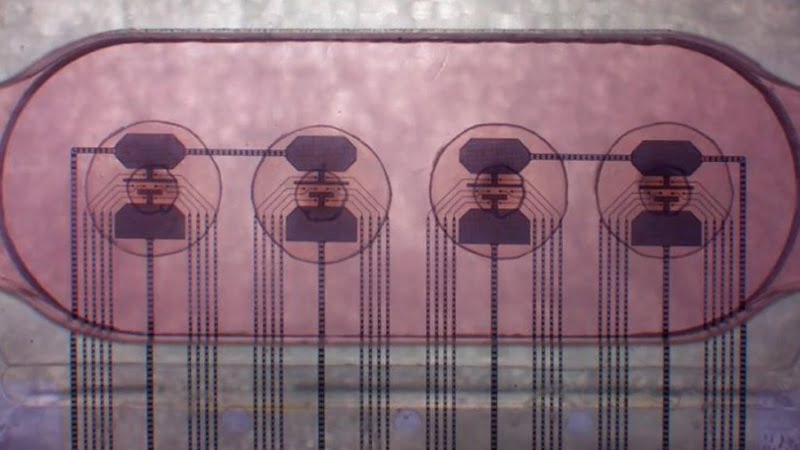
Large data centers consume huge amounts of energy. But the Swiss start-up FinalSpark wants to change that with its bioprocessors and has now developed the first living computer made from human brain cells.
One of the biggest disadvantages of technological progress is the “high energy costs required to process digital information,” writes the start-up FinalSpark on its website. Training artificial intelligence in particular consumes an enormous amount of computing power.
The Swiss start-up therefore wants to find alternatives to the silicon-based processors currently in use. The company is researching how to replace these processors with living computers made from human brain cells.
Swiss company develops living computer from human brain cells
However, FinalSpark does not want to solve this energy problem by finding new forms of energy generation. The start-up prefers to use “unconventional data processing”. One example of this is biological computing.
The company's website states that “living neurons are used to perform calculations.” This could create new generation processors.
We believe that unconventional computing is the best way to reduce carbon emissions.
One of the biggest advantages of biological computing is the greatly reduced energy consumption that neurons need to process information. It is estimated that these neurons require more than a million times less energy than processors currently available on the market.
Neurons originate from skin cells
The Swiss start-up is already able to develop a living computer from human stem cells. For this purpose, induced pluripotent stem cells can be taken from human skin.
From these, FinalSpark has created a living computer with 16 human brain organoids. These organoids are organ-like microstructures that do not have vessels, but do have organ-like properties. For example, they can imitate the structure of the brain.
Despite the enormous advantages that come with the use of such bioprocessors, their programming has not yet been fully clarified. According to FinalSpark, these biocomputers are “a real black box” in contrast to digital computers. Many experiments will therefore be needed before they can actually be used.
Also interesting:
Source: https://www.basicthinking.de/blog/2024/06/04/computer-aus-menschlichen-gehirnzellen/


